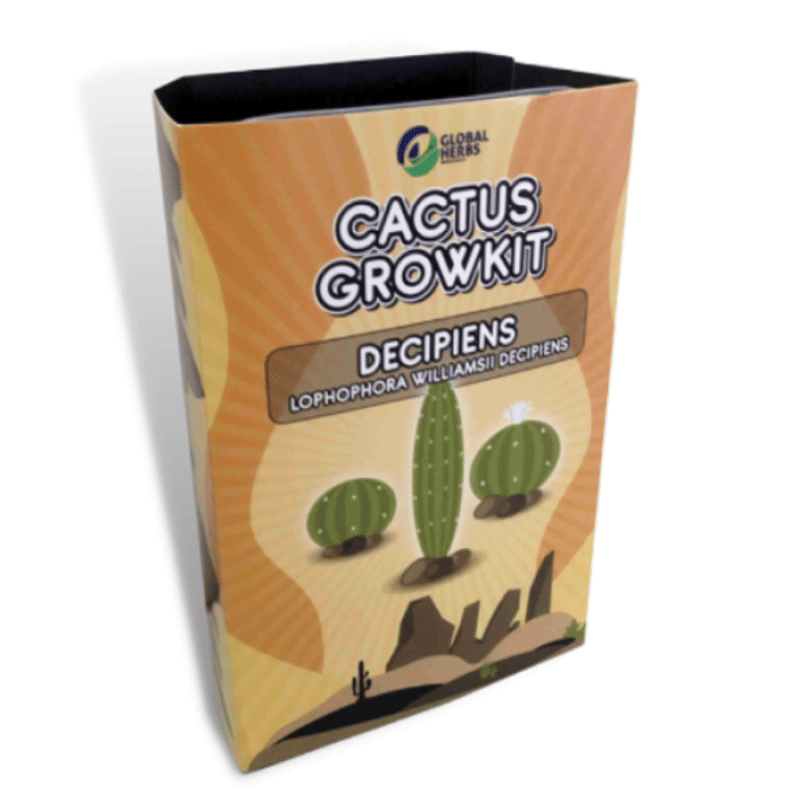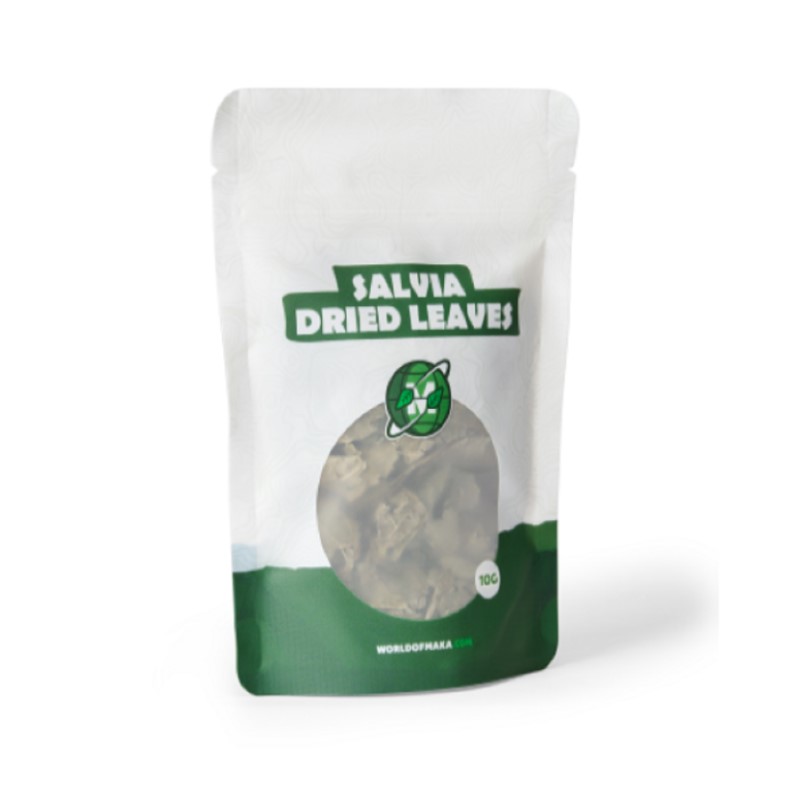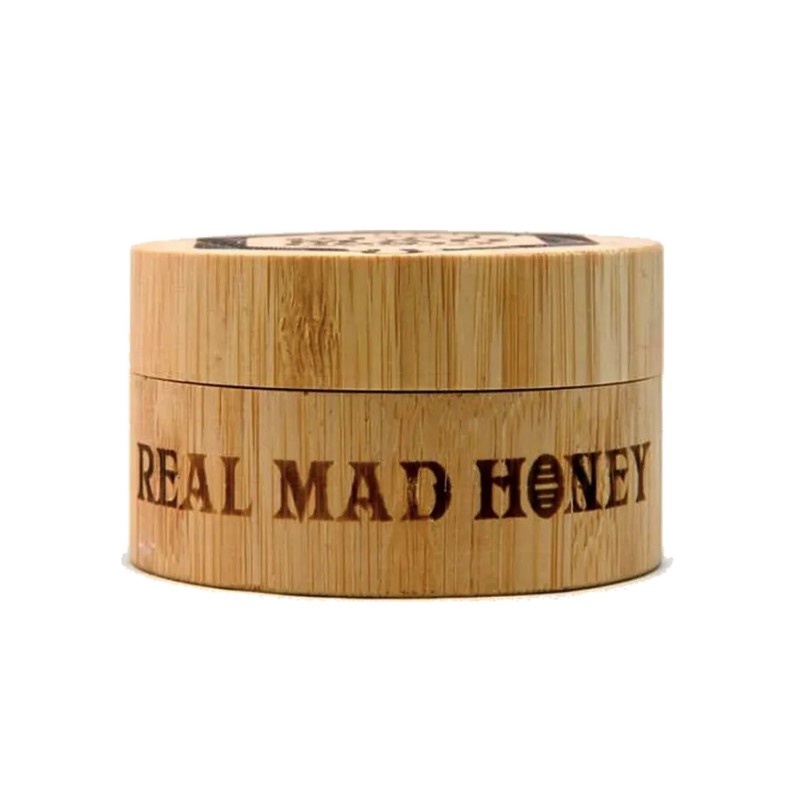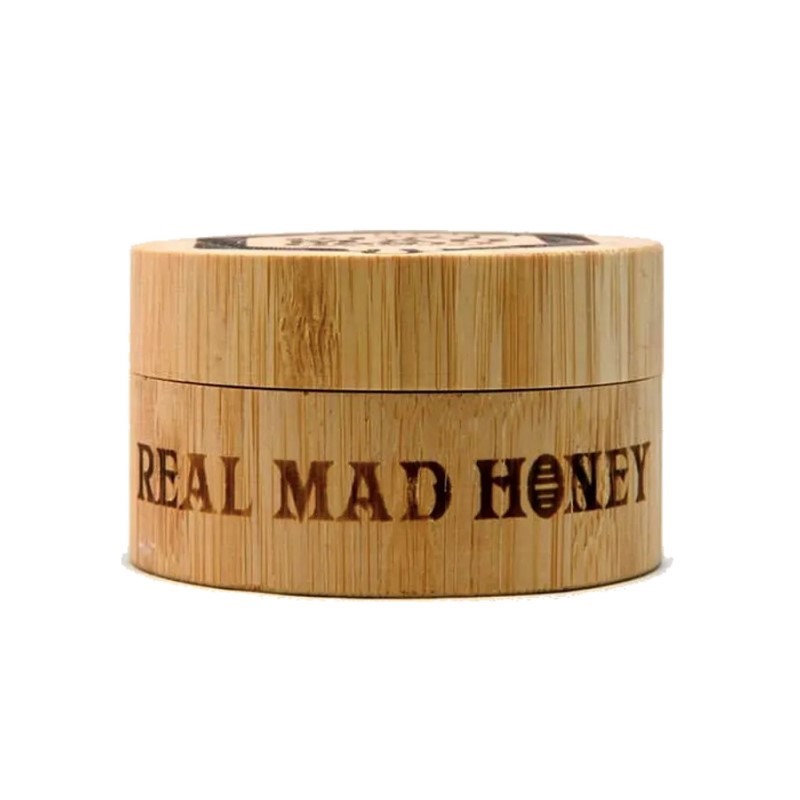PSYCHEDELIC HERBS
Explore our extensive range of psychedelic herbs, where you’ll find all the products and seeds that have enriching and mind-expanding effects. Each product in this selection offers a unique experience for both your body and mind. Discover our diverse range today and be enchanted by the extraordinary effects these herbs and seeds can provide.
WHAT ARE PSYCHEDELICS?
Psychedelics is a collective term for a group of substances that can have enriching and mind-expanding effects. These substances are known for their ability to temporarily alter an individual’s perception, thoughts, and emotions, providing deeper meaning to the human experience. A common characteristic of psychedelics is their ability to change sensory perception. Individuals using psychedelics may experience more intense colors and patterns, perceive sounds as music with deeper meaning, and feel emotions in a highly intense and profound way. In addition to aesthetic effects, psychedelics are often associated with increased introspection and spiritual insights.
THE HISTORY OF PSYCHEDELICS
The history of psychedelics dates back thousands of years and is closely intertwined with various cultures and spiritual traditions around the world. Here are some key moments and developments in the history of psychedelics:
- Indigenous cultures and ritual practices: Psychedelics have been used for centuries in indigenous cultures for ritual and spiritual purposes. Examples include the use of peyote cacti and other plants with psychoactive properties by Native American tribes, the use of ayahuasca in the Amazon by indigenous peoples, and the use of psilocybin-containing mushrooms by indigenous communities in various parts of the world.
- Modern discovery of LSD: The modern history of psychedelics begins with the discovery of lysergic acid diethylamide (LSD) in 1938 by Albert Hofmann, a Swiss chemist. While LSD was originally developed as a medicine, it became popular in the 1950s and 1960s as a means of altering consciousness and became associated with the rise of counterculture and the hippie movement.
- Psychedelics and psychotherapy: In the 1950s and 1960s, there was significant research in psychiatry and psychotherapy into the use of psychedelics as therapeutic tools. Researchers explored the potential role of psychedelics in treating conditions such as anxiety, depression, and addiction.
- Prohibition and persecution: In the 1960s and 1970s, many psychedelics, including LSD, were banned in many countries due to their perceived harmful effects and the risk of misuse. Research into psychedelics was hindered, and their use entered a period of decline.
- Contemporary resurgence of research: In recent decades, there has been a resurgence of research into psychedelics, particularly in the field of psychotherapy. Studies have shown promising results regarding the use of psychedelics in treating conditions such as PTSD, depression, and anxiety. Some countries have also eased restrictions on psychedelic research.
- Popularity and recreational use: Psychedelics continue to be popular among some individuals for recreational use and spiritual exploration. Today, there are various underground and above-ground communities engaging in the use of psychedelics for personal growth and expanded consciousness.
WHAT ARE SOME OF THE POSSIBLE BENEFITS OF PSYCHEDELIC HERBS?
Psychedelics have garnered attention for their potential positive effects on mental and emotional well-being. While research into psychedelics is still in its early stages, some promising benefits have been observed in clinical studies and anecdotal evidence. Some possible benefits include:
- Therapeutic potential: Psychedelics are being investigated as potential treatments for conditions such as depression, anxiety disorders, post-traumatic stress disorder (PTSD), and addictions. Clinical studies have shown that psychedelics can have positive effects on the symptoms of these conditions.
- Emotional processing: Psychedelics can assist in facilitating deep emotional processing and introspection. They can enable individuals to confront and integrate suppressed emotions and traumas.
- Enhanced sense of well-being: Users of psychedelics often report an increased sense of well-being, satisfaction, and life purpose. They may experience a sense of connection to nature, the universe, and others.
- Spiritual experiences: For some people, psychedelics can induce spiritual and mystical experiences, providing them with a profound sense of meaning and connection to something greater.
- Increased insight and creativity: Some psychedelic users report heightened insight, creativity, and an improved ability to solve complex problems.
- Reduced fear of death: Research has shown that psychedelics can help reduce fear of death and promote a better understanding of one’s own mortality.
DIFFERENT TYPES OF PSYCHEDELICS
There are various types of psychedelics, each originating from different sources and possessing unique chemical structures. Here are some of the most well-known psychedelics:
- Lysergic acid diethylamide (LSD) and lysergic acid amide (LSA): LSD is a synthetic psychedelic substance originally derived from ergot, a grain fungus. It’s known for its intense effects on perception, thoughts, and emotions. LSA is a naturally occurring compound extracted from certain plants and has similar effects.
- Psilocybin: Psilocybin is the active component in hallucinogenic mushrooms, also known as magic mushrooms. Psilocybin induces colorful visual experiences and altered states of consciousness.
- Dimethyltryptamine (DMT): DMT is a powerful psychedelic substance found naturally in certain plants and is also present in some animals and humans. It’s known for its short, intense, and often spiritual experiences.
- Mescaline: Mescaline is found in various cacti, including the peyote cactus and the San Pedro cactus. It’s a Native American psychedelic with a long history of ritual use.
- Ayahuasca: Ayahuasca is a brew made from various plants, including one containing DMT, and is used in shamanic rituals in the Amazon. It’s known for its potent and long-lasting psychedelic effects.
- 2C-B: 2C-B belongs to a class of synthetic psychedelics known as phenethylamines. It has mild hallucinogenic properties and is popular in the recreational psychedelic community.
- Ibogaine: Ibogaine is a natural substance found in the iboga plant native to Africa. It’s known for its potential to break addiction and promote introspection.
- Salvinorin A: Salvinorin A is the active compound in the Salvia divinorum plant, used for its powerful and short-lived hallucinogenic effects.
These are just a few examples of psychedelics, and there are many other substances that also exhibit psychedelic properties.
THE EFFECTS OF PSYCHEDELICS
The effects of psychedelics can vary widely depending on the specific substance, dosage, individual sensitivity, and environmental factors. Generally, the effects of psychedelics can be categorized into several areas:
- Visual effects: Many psychedelics are known for their visual changes. You may perceive more intense colors, patterns, distortions, and moving objects. This is often referred to as hallucinations.
- Altered perception: Psychedelics can change the way people perceive and understand the world around them. You may experience an increased sense of connection to nature, others, and the universe, as well as a change in the perception of time and space.
- Emotional effects: Individuals may experience a wide range of emotions during a psychedelic experience, ranging from extremely positive and euphoric to anxiety, sadness, or confusion. Emotions can be deep and intense, and some users report a profound sense of meaning and connection to their own emotions.
- Spiritual and mystical experiences: For some people, psychedelics can lead to spiritual and mystical experiences, providing a sense of transcendence, unity, and insight into the meaning of life.
- Altered consciousness: Psychedelics can alter the nature of consciousness, making users aware of new ideas, concepts, and perspectives they hadn’t considered before.
- Enhanced creativity and insight: Some individuals report an increased ability to generate creative solutions and gain insights into personal issues during or after a psychedelic experience.














